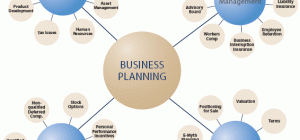 Do you think that some other businesses may have a leg up in the marketplace? Instead of whining and crying about how they got there, play dirty. Steal their not-so-secret secrets and have your own success; enough with the excuses.
Do you think that some other businesses may have a leg up in the marketplace? Instead of whining and crying about how they got there, play dirty. Steal their not-so-secret secrets and have your own success; enough with the excuses.
You read that write: stop whining. It's not going to get you anywhere, and it's preventing you from getting to those places you need to be. Everyone who has been successful in business did not get there by whining. While it's true that some people may have more connections and a larger network, you're certainly not improving your own network by moping on the couch. Get up, get out, and start improving your business. Here's how to start at the top:
Start Your Circle: Being in business, you already know that money truly does make the world go ‘round. It follows, then, that the best place to begin making connections is with your bank. Larger companies may have more than one bank (one for daily business, one for investments), but regardless of the number you have, be sure to make a connection. Keep in touch with the same people: if you're a large business, only use one employee to consistently keep in touch with one bank contact. This promotes familiarity, and breeds a relationship.
Be careful: this isn't an excuse to blow off every other employee in the bank: become familiar with the manager and your regular teller, and friendly to everyone else. If you're regular contact takes an extra day off, don't panic: just make a new friend.
Ask questions. Do they have a dog? Do they enjoy their job? What about sponsorships the bank may have? Be tactful (read: not creepy); treat this relationship no different than any other you may have. Do not offer bribes or ask for favors (read: be creepy). Instead, inspire trust by listening and being genuine; a friendly smile and a Starbucks brew on a Monday morning can go a long way.
Just how far can it go? Joel Bassam from directcarbuying.com says, "Establishing a personal relationship with someone outside of your industry can definitely pack a large payoff later on down the road. People like to help other people, it's just in our nature." Banks who are familiar with their clients are more likely to offer loans at preferential interest rates, as opposed to those invisible clients that simply do their business and leave. This could open your business up to additional lines of credit, and potentially come to the rescue: banks that have a relationship with their client are more likely to be helpful in those textbook cases of insolvency.
Deposits & Withdrawals: Is it better to spend money or save money? That isn't a trick question: the answer is to save. In this case, think of your relationships in business like your bank account: you want to put more money in that you want to take in. Likewise, you want to put more into your relationships (especially in the beginning) than what you take out.
Read: no one is going to do anything for you just because you're a relatively nice person. Everyone (that was successful) in the business world has had to do his or her fair share of kissing tail, and you, my friend, are no different. I don't mean that you need to buy a Labradoodle for your prospective investor; I mean that you need to first be a good connection to have.
Listening, giving honest feedback, and generally being reliable is a great foundation to becoming a great network. Not only should you ask questions and become familiar with your bank (and bank contact), you need to look good on paper. Be on time with your payments, promptly return messages, and be sincere. Ask your bank which sponsorships look best from their angle and don't be angry when it isn't what you wanted to hear.
The more you put in, the more likely you'll be able to cash out later.
GO! Don't just sit there, scrounging the Internet for answers. If you can't make your business better, no one else can; and if you can't survive in the marketplace, you won't be missed. With that in mind, don't wait until you fall or fly to begin building your relationship with your bank.
Get a leg-up on the business world and start before your loan application is even submitted. Begin by doing your research: know that there are limitations imposed on banks by the federal government. Banks cannot invest in start-up businesses: the government deemed it too risky to put depositor's money up-for-grabs on businesses that couldn't prove they would survive. This doesn't mean you attempt to be a venture capital investment, either: typically venture capital candidates know it before their ship even sails, as they are high-growth plans backed by high-powered management.
Not what you had in mind? Don't pout: the Small Business Administration (SBA) is named after the small businesses it was created to help. Sometimes, they offer more assistance to small businesses than a larger financial institution can. The SBA isn't a bank itself: it is a loophole. It works with local banks in your area to help finance your start-up business, or provide your business with what it needs.
Stop making excuses about Big Government and bailing out Wall Street: the only person stopping you from achieving that success is yourself. Start where the money is (your bank), and work your way down. You'll be surprised how quickly you feel accomplished.







